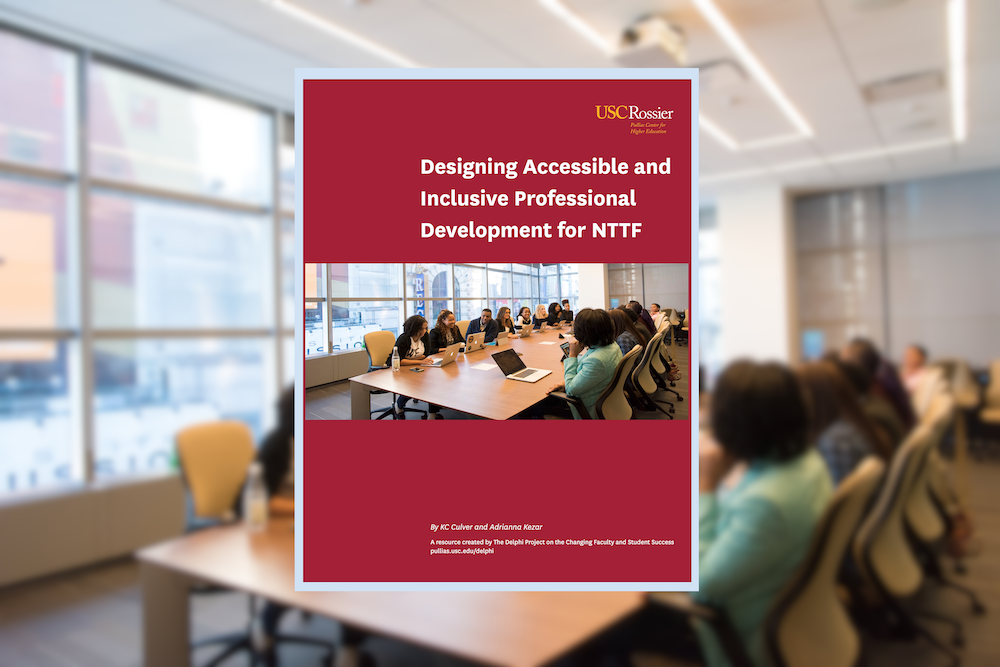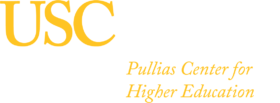Designing Accessible and Inclusive Professional Development for NTTF is a new report from the Pullias Center for Higher Education that takes a close look at how universities support non-tenure-track faculty (NTTF) in professional development. This includes examining emerging and best practices—such as providing faculty with orientations, workshops and symposiums, learning communities, scholarly conferences, newsletters and resource websites, or awards.
Adrianna Kezar and KC Culver, Pullias Center researchers on the study, which is part of the center’s Delphi Project, conducted case studies and interviewed 29 individuals across 14 various campuses which had altered their professional development in order to help meet the needs of non-tenure-track faculty. “The campuses that we studied offered a wide variety of professional development opportunities for NTTF,” states Culver in the study. “Creating a suite of professional development options is often necessary to support NTTF with varying needs, interests, and time constraints as well as to meet different institutional missions.”
The report additionally analyzes faculty learning communities (FLCs), which are groups of faculty that regularly meet to discuss their professional practice, and is the first to do so in regards to non-tenure-track faculty. Adjuncts and NTTF have fewer opportunities and more complicated schedules than tenure-track faculty, which often makes scheduling difficult and attendance lower for FLCs.
“Contingent faculty make up a large portion of college and university educators, and so it only makes sense that they are provided with the professional development opportunities best suited for them,” says Adrianna Kezar, principal investigator on this project and Director of the Pullias Center who has led and conducted extensive research on the plight of contingent in Higher Education. “This study shines a light on how institutions can better improve their programs, ensure student success and assist their faculty in meaningful ways, which can in turn provide a better learning experience for students.”
Among other conclusions, the report suggests that without an established system of professional development that is empathetic to the needs and desires of non-tenure-track faculty, the success of an institution’s plan is limited. The publication also offers effective methods and models for campuses to implement to best support their non-tenure-track faculty professional development needs across a host of different institutional types and varying contingent faculty appointments.
For more information on non-tenure-track faculty, check out the Pullias Center’s Delphi Project and Scaling Support for Non-tenure Track STEM Faculty page.
This project is funded from the Improving Undergraduate STEM Education program within the Department of Undergraduate Education of the National Science Foundation, under Grant No. NSF DUE-1914784.







